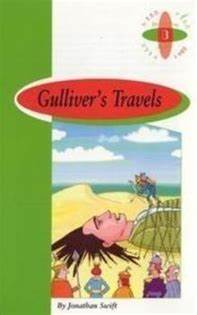Let's learn more about Halloween:
Thanks to "A place for sharing" for this great resource!domingo, 23 de octubre de 2022
domingo, 16 de octubre de 2022
Go away, Big Green Monster!
An interesting Genially with lots of activities and the story "Go away, Big Green Monster! for young kids. Thanks to Belén Junquera (@profeteacher_) for this wonderful resource!:
lunes, 6 de junio de 2022
POSSESSIVE ADJECTIVES
Learn the possessive adjectives with this short video:
And remember, for every pronoun we have a different possessive adjective:
👉Click on this link and do the interactive worksheet 😊
martes, 24 de mayo de 2022
jueves, 19 de mayo de 2022
Let's go on a picnic! (1º)
We're in Unit 6: Let's have a picnic! Here you are new contents to work at home. ¡Espero que te gusten!
And now, let's play some games!
miércoles, 20 de abril de 2022
martes, 19 de abril de 2022
There is/ there are...
viernes, 15 de abril de 2022
Modal verbs: CAN -HAVE TO - MUST
WE USE CAN / CAN'T TO TALK ABOUT ABILITIES:
More examples:
-She can drive a car but she can't rollerskate
-We can speak English but we can't speak Chinese.
WE USE HAVE TO/DON'T HAVE TO (NEED TO/DON'T NEED TO) TO EXPRESS SOMETHING THAT IS NECESSARY TO DO:
More examples:
-The Geography exam is next Tuesday, we have to/ need to study hard.
-There is a café at school, so you don't have to/ you don't need to bring your lunch, you can buy it there.
WE USE MUST/ MUSTN'T FOR OBLIGATION OR PROHIBITION:
More examples:
-You mustn't feed animals at the zoo, it's forbidden!
-You must be at school at 8.30 every day.
Now, do the activities:
Past Simple of Regular verbs and To be
As you already know, the past of the verb To Be (ser/estar) has two forms: WAS and WERE.
The past of REGULAR VERBS finishes in -ed:
visit - visited
listen - listened
like - liked (*when the verb ends in -e, just add the 'd')
stop - stopped (*when the verb ends in CVC and strong syllable, double the final consonant)
cry - cried (*when the verb ends in consonant + Y, change 'y' for 'i')
Let's practice with some videos and interactive games:
👉Game 2 (some are irregular verbs)
👉Game 3(there was/there were)
It's my birthday!
La unidad 5 de 2º de Primaria trata sobre una fiesta de cumpleaños. It's Sarah's birthday! Trabajaremos el vocabulario de los alimentos y también la forma interrogativa de Have got (tener). En esta ocasión, os invito a que repaséis las entradas del blog que os enlazo a continuación, donde podéis encontrar mucho material (y otros enlaces nuevos que añado aquí):
👉Singing by tens and count to 100
👉Ficha interactiva (likes and dislikes)
Pets
miércoles, 2 de marzo de 2022
Irregular verbs don't make the past by adding -ed, they are different! (Los verbos irregulares no forman el pasado con -ed). Al final de tu libro tienes una lista con los 80 verbos irregulares más usados. Te preguntarás por qué aparecen varias columnas: aparece el verbo en infinitivo y su traducción a español, el pasado simple del verbo y otra columna con el participio (que más adelante utilizarás para formar tiempos verbales compuestos, habitualmente con HAVE delante).
How do we form a sentence in the past? Read the example:
(+) She had some cereal and milk for breakfast yesterday (verbo en pasado)
Extra interactive activities to study irregular verbs:
Toys
Hi everyone!
Trabajamos la unidad de los juguetes en primero (toys), y para ello, os dejo unos enlaces interesantes que podemos también trabajar desde casa.
Aquí tienes algunos juegos y actividades online:
📌 Memory game: toys. CLICK HERE
📌Interactive worksheet: toys. CLICK HERE
📌Interactive worksheet: in/on/under/behind. CLICK HERE
jueves, 10 de febrero de 2022
The farm
Welcome to Unit 4! Let's learn about the farm. Sing along!
Now, you can play games:
1. Farm animals 1
And interactive worksheet here
miércoles, 2 de febrero de 2022
Readings 1st and 2nd ESO
lunes, 10 de enero de 2022
Jolly Phonics
Este trimestre vamos a comenzar con la metodología Jolly Phonics para los alumnos de los primeros cursos. Con ella, los niños asimilan los sonidos de la lengua inglesa asociando grafía, dibujo, sonido y canciones que refuerzan el sonido de dicha grafía. De esta manera, se facilita el aprendizaje de la lectoescritura como lo harían en su lengua materna. Hay una canción para cada sonido. Empezamos con los primeros cuatro grupos de sonidos:









